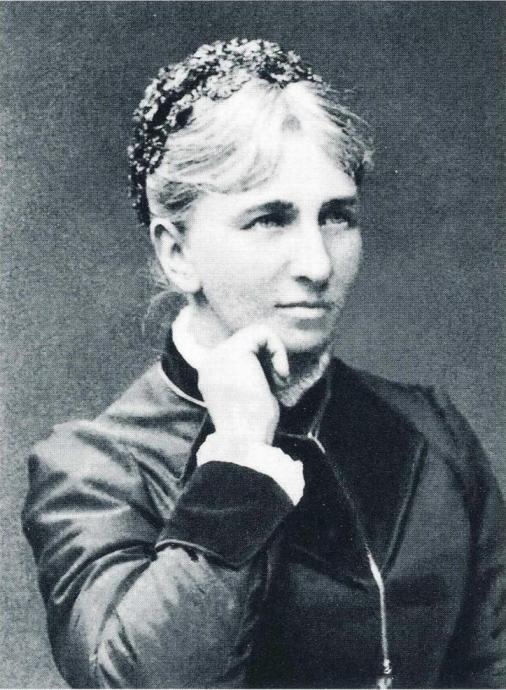Elisabeth Järnefelt on:
[Wikipedia]
[Google]
[Amazon]

 Elisabeth Järnefelt (née Clodt von Jürgensburg; 11 January 1839 – 3 February 1929) was a Finnish salonist, known as "the mother of
Elisabeth Järnefelt (née Clodt von Jürgensburg; 11 January 1839 – 3 February 1929) was a Finnish salonist, known as "the mother of

 Elisabeth Järnefelt (née Clodt von Jürgensburg; 11 January 1839 – 3 February 1929) was a Finnish salonist, known as "the mother of
Elisabeth Järnefelt (née Clodt von Jürgensburg; 11 January 1839 – 3 February 1929) was a Finnish salonist, known as "the mother of Finnish
Finnish may refer to:
* Something or someone from, or related to Finland
* Culture of Finland
* Finnish people or Finns, the primary ethnic group in Finland
* Finnish language, the national language of the Finnish people
* Finnish cuisine
See also ...
art and culture".Biografiskt lexikon för Finland 2. Ryska tiden (2009).
Life
Elisabeth's parents were the general and wood engraver Konstantin Karlovitj Clodt von Jürgensburg and Catharina Vigné. She was educated first at a girls school and then at home, and raised inSaint Petersburg
Saint Petersburg ( rus, links=no, Санкт-Петербург, a=Ru-Sankt Peterburg Leningrad Petrograd Piter.ogg, r=Sankt-Peterburg, p=ˈsankt pʲɪtʲɪrˈburk), formerly known as Petrograd (1914–1924) and later Leningrad (1924–1991), i ...
in Russia.
Elisabeth married August Aleksander Järnefelt on 22 December 1857 at Saint Petersburg
Saint Petersburg ( rus, links=no, Санкт-Петербург, a=Ru-Sankt Peterburg Leningrad Petrograd Piter.ogg, r=Sankt-Peterburg, p=ˈsankt pʲɪtʲɪrˈburk), formerly known as Petrograd (1914–1924) and later Leningrad (1924–1991), i ...
, and settled with him in Helsinki in Finland. Their children were , Arvid, Erik, Ellida, Ellen, Armas, Aino, Hilja and Sigrid. Armas, Arvid and Erik were famous Finnish cultural figures. Daughter Aino Järnefelt was married to composer Jean Sibelius
Jean Sibelius ( ; ; born Johan Julius Christian Sibelius; 8 December 186520 September 1957) was a Finnish composer of the late Romantic and early-modern periods. He is widely regarded as his country's greatest composer, and his music is often ...
. Elisabeth Järnefelt was also a good friend of the writer Juhani Aho.
Her marriage was not a happy one. After the birth of their last child, her spouse decided to live in chastity: he was described as a strict patriarch who disliked spending money, and Elisabeth Järnefelt was reportedly forced to ask friends and relatives for loans to manage the household economy because her refused to give her enough funds. Eventually, the couple spent as much time away from each other as possible: from 1876 onward, they spoke only through messages delivered by their children. Both of them, however, continued to have a good relationship with their children despite their personal relationship. It is possible that she had an affair with Johannes Brofeldt (also called Juhani Aho) in the 1880s, but never confirmed.
Elisabeth Järnefelt became a central figure of Finnish culture as the host of a literary salon in Helsinki, referred to as "Järnefelts skola" (Järnefelt School), centered around Scandinavian, Finnish and Russian literature. It was also the center of discussion of politics, religion and equality. When her sons was at university, her salon became a center of the Fennoman movement
The Fennoman movement or Fennomania was a Finnish nationalist movement in the 19th-century Grand Duchy of Finland, built on the work of the ''fennophile'' interests of the 18th and early-19th centuries.
History
After the Crimean War, Fennoman ...
of Finnish nationalism, the association K.P.T. or "koko programmi toimeen", which worked to introduce the Finnish language in then Russian Finland, were the Swedish language was leading in the upper classes. The "Elisabeths krets" (Elisabeth Circle), as the salon was also called, is regarded as the starting point of the modern Finnish language realism and the first Finnish language writers. She was a follower of the Tolstoyan movement
The Tolstoyan movement is a social movement based on the philosophical and religious views of Russian novelist Leo Tolstoy (1828–1910). Tolstoy's views were formed by rigorous study of the ministry of Jesus, particularly the Sermon on the Mo ...
, likely the first in Finland. She closed her salon when her spouse moved to Vasa in the end of the 1880s.
After the death of her spouse in 1896, she bought her own farm, Vieremä, where she lived until she moved in with her widowed son Kasper in 1906, with whom she lived the rest of her life. She lived on the pension awarded by Tsarist Russia due to her late spouse being a Russian general, but lost it after the Russian Revolution of 1917, and spent her last years in reduced means.
References
{{DEFAULTSORT:Jarnefelt, Elisabeth 1839 births 1929 deaths People from Helsinki Baltic nobility Finnish people of Baltic German descent 19th-century Finnish nobility Finnish salon-holders 19th-century Finnish women 20th-century Finnish women